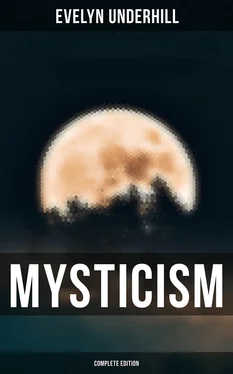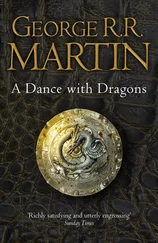Amongst the more intractable of these groups of perceptions and experiences are those which we connect with religion, with pain and with beauty. All three, for those selves which are capable of receiving their messages, possess a mysterious authority far in excess of those feelings, arguments, or appearances which they may happen to contradict. All three, were the universe of the naturalists true, would be absurd; all three have ever been treated with the reverence due to vital matters by the best minds of the race.
A. I need not point out the hopelessly irrational character of all great religions: which rest, one and all, on a primary assumption that can never be intellectually demonstrated, much less proved — the assumption that the supra-sensible is somehow important and real, and is intimately connected with the life of man. This fact has been incessantly dwelt upon by their critics, and has provoked many a misplaced exercise of ingenuity on the part of their intelligent friends. Yet religion — emphasizing and pushing to extremes that general dependence on faith which we saw to be an inevitable condition of our lives — is one of the most universal and ineradicable functions of man, and this although it constantly acts detrimentally to the interests of his merely physical existence, opposes “the exclusive action of the will-to-live,” except in so far as that will aspires to eternal life. Strictly utilitarian, almost logical in the savage, religion becomes more and more transcendental with the upward progress of the race. It begins as black magic; it ends as Pure Love. Why did the Cosmic Idea elaborate this religious instinct, if the construction put upon its intentions by the determinists be true?
B. Consider again the whole group of phenomena which are known as “the problem of suffering”: the mental anguish and physical pain which appear to be the inevitable result of the steady operation of “natural law” and its voluntary assistants, the cruelty, greed, and injustice of man. Here, it is true, the naturalist seems at first sight to make a little headway, and can point to some amongst the cruder forms of suffering which are clearly useful to the race: punishing us for past follies, spurring to new efforts, warning against future infringements of “law.” But he forgets the many others which refuse to be resumed under this simple formula: forgets to explain how it is that the Cosmic Idea involves the long torments of the incurable, the tortures of the innocent, the deep anguish of the bereaved, the existence of so many gratuitously agonizing forms of death. He forgets, too, the strange fact that man’s capacity for suffering tends to increase in depth and subtlety with the increase of culture and civilization; ignores the still more mysterious, perhaps most significant circumstance that the highest types have accepted it eagerly and willingly, have found in Pain the grave but kindly teacher of immortal secrets, the conferrer of liberty, even the initiator into amazing joys.
Those who “explain” suffering as the result of nature’s immense fecundity — a by-product of that overcrowding and stress through which the fittest tend to survive — forget that even were this demonstration valid and complete it would leave the real problem untouched. The question is not, whence come those conditions which provoke in the self the experiences called sorrow, anxiety, pain: but, why do these conditions hurt the self? The pain is mental; a little chloroform, and though the conditions continue unabated the suffering is gone. Why does full consciousness always include the mysterious capacity for misery as well as for happiness — a capacity which seems at first sight to invalidate any conception of the Absolute as Beautiful and Good? Why does evolution, as we ascend the ladder of life, foster instead of diminishing the capacity for useless mental anguish, for long, dull torment, bitter grief? Why, when so much lies outside our limited powers of perception, when so many of our own most vital functions are unperceived by consciousness, does suffering of some sort form an integral part of the experience of man? For utilitarian purposes acute discomfort would be quite enough; the Cosmic Idea, as the determinists explain it, did not really need an apparatus which felt all the throes of cancer, the horrors of neurasthenia, the pangs of birth. Still less did it need the torments of impotent sympathy for other people’s irremediable pain the dreadful power of feeling the world’s woe. We are hopelessly over-sensitized for the part science calls us to play.
Pain, however we may look at it, indicates a profound disharmony between the sense-world and the human self. If it is to be vanquished, either the disharmony must be resolved by a deliberate and careful adjustment of the self to the world of sense, or, that self must turn from the sense-world to some other with which it is in tune.11 Pessimist and optimist here join hands. But whilst the pessimist, resting in appearance, only sees “nature red in tooth and claw” offering him little hope of escape, the optimist thinks that pain and anguish — which may in their lower forms be life’s harsh guides on the path of physical evolution — in their higher and apparently “useless” developments are her leaders and teachers in the upper school of Supra-sensible Reality. He believes that they press the self towards another world, still “natural” for him, though “supernatural” for his antagonist, in which it will be more at home. Watching life, he sees in Pain the complement of Love: and is inclined to call these the wings on which man’s spirit can best take flight towards the Absolute. Hence he can say with A Kempis, “Gloriari in tribulatione non est grave amanti,”12 and needs not to speak of morbid folly when he sees the Christian saints run eagerly and merrily to the Cross.13
He calls suffering the “gymnastic of eternity,” the “terrible initiative caress of God”; recognizing in it a quality for which the disagreeable rearrangement of nerve molecules cannot account. Sometimes, in the excess of his optimism, he puts to the test of practice this theory with all its implications. Refusing to be deluded by the pleasures of the sense world, he accepts instead of avoiding pain, and becomes an ascetic; a puzzling type for the convinced naturalist, who, falling back upon contempt — that favourite resource of the frustrated reason — can only regard him as diseased.
Pain, then, which plunges like a sword through creation, leaving on the one side cringing and degraded animals and on the other side heroes and saints, is one of those facts of universal experience which are peculiarly intractable from the point of view of a merely materialistic philosophy.
C. From this same point of view the existence of music and poetry, the qualities of beauty and of rhythm, the evoked sensations of awe, reverence, and rapture, are almost as difficult to account for. The question why an apparent corrugation of the Earth’s surface, called for convenience’ sake an Alp, coated with congealed water, and perceived by us as a snowy peak, should produce in certain natures acute sensations of ecstasy and adoration, why the skylark’s song should catch us up to heaven, and wonder and mystery speak to us alike in “the little speedwell’s darling blue” and in the cadence of the wind, is a problem that seems to be merely absurd, until it is seen to be insoluble. Here Madam How and Lady Why alike are silent. With all our busy seeking, we have not found the sorting house where loveliness is extracted from the flux of things. We know not why “great” poetry should move us to unspeakable emotion, or a stream of notes, arranged in a peculiar sequence, catch us up to heightened levels of vitality: nor can we guess how a passionate admiration for that which we call “best” in art or letters can possibly contribute to the physical evolution of the race. In spite of many lengthy disquisitions on Esthetics, Beauty’s secret is still her own. A shadowy companion, half seen, half guessed at, she keeps step with the upward march of life: and we receive her message and respond to it, not because we understand it but because we must .
Читать дальше












